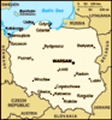Advertisement
Published: July 23rd 2015

 Serendipity
Serendipity
We happened upon the perfect taxi driver. Note the Hebrew on the windshield. Language is an entry way into experience. In his influential 1961 book
What Is History? the British historian E.H. Carr put forth several bold arguments about history as a field of scholarly inquiry. It was a provocative book in its time; I read it as an undergraduate but not because it was on any reading list. One of its premises is that there is no such thing as truly objective history, because the historian is always to one extent or another a captive of his or her own subjective reality. That doesn't mean that history is whatever we want it to be, but that we approach the task of gathering and assembling the facts, telling a story, and interpreting what that narrative means with humility about our own bounded place in time and space. A famous line in the book is the title of this post, where he describes history as a dialogue.
The sages of the Talmud also were aware of the complexities of "the facts" of any purported chronological narrative. As far back as the sixth century they wrote that in regard to the biblical narrative, "There is no before and no after in the Torah."In this pithy statement they acknowledge that even a text

 6 Zielna Street
6 Zielna Street
The driver told us that this lot would have been the location of the apartment building of my father. This place is in the center of the city. as sacred as the Five Books of Moses is not immune to the dilemmas of how we humans tell our stories and interpret the experiences of which they are composed.
This issue has been on my mind for a very specific, and even uncomfortable reason. In my previous blog I spent a fair amount of space, in text and photo, on 6 Dzielna Street, the location of which I wrote was my father's birthplace. When my father asked the taxi driver to take us to the street, neither he nor I, nor, apparently, the taxi driver, realized that there was a slight but significant difference in pronunciation or in interpretation in the subtlety of Polish. The taxi driver did indeed take us to a street that had been part of a heavily Jewish neighborhood before the war and was in the heart of the the ghetto during it. It made sense,
but it was the wrong street. Yes. A Polish friend who has spent his entire life in Warsaw was certain that we'd gone to the wrong street. It was, he said,
Zielna Street that we needed to visit based on how he heard my father say the name

 View of Zielna Street
View of Zielna Street
The street was completely destroyed during the Warsaw Uprising in 1944. he'd remembered his mother pronouncing many a time.
And he was right. I did some digging on the Internet and was able to locate a digital copy of the Warsaw telephone book from 1938/1939 - the final year of their residence in Warsaw and in Poland. Sitting in my hotel room I combed through it, and low and behold there was my grandfather's name, occupation, phone number and address. And not only did I find confirmation of this address, but I was also able to locate my the pre-war address of my grandmother's brother Jakub Rosenblum, a doctor who ran the health clinic in the ghetto until he took cyanide tablets rather than allow the Nazis to deport him.
At first it felt as if this was a strange joke that the city was playing on me. I'd walked down a street and imagined a past that didn't exist, at least not for my father. I'd published and publicized a story as history when it was, actually, inaccurate and false. The feelings were not, of course, but all the same it felt rather distressing nonetheless.
But it turned out to be a blessing, because today we had

 The Nozyk Synagogue
The Nozyk Synagogue
Built between 1898-1902. Around the corner from my father's street. a most remarkably serendipitous encounter as we went in search of the accurate addresses and of some of the sites nearby them. As we were walking and talking with a map in hand, wondering how to proceed to locate not only the real address but also the last remnant of the ghetto walls, the voice of a taxi driver addressed us from the inside of a taxi we were about to pass. Who was this man? A 57 year old Jew who'd lived in Warsaw his whole life a part from a few years when he lived in New Jersey, not far from where my parents now live. We approached him; I noticed that his taxi had Hebrew on it. He offered to drive us to the sites and he went with us to each one.
For the next two hours Mr. Kryztof Kurman toured with us, showing us not only my father's actual street, which had been a quiet but vital thoroughfare in the city center, and which was in another heavily Jewish area, but also other locations in and around the neighborhood. In fact, where he was born was 400 meters or five minutes by foot from

 Despite Everything, Still in Use
Despite Everything, Still in Use
Synagogues and churches are a part of the landscape and life in Poland that I am intrigued by. the only synagogue in Warsaw that was not destroyed by the Nazis because they used it as a warehouse or stable. Once again I felt the mixture of emotions as I saw what the street looks like today (there is no six and it was almost completely destroyed and the nearby synagogue is still standing and still holds services - it is a center of the Warsaw Jewish community today). I wondered whether my grandparents had attended services there. Once again, I attempted to imagine what life might have been like for them. I also realized that my grandfather never returned to Poland for a visit. He left in July of 1939 intending to return but war changed everything. I never did talk with him about what that was like for him.
Warsaw is not the city it was when my father was born. To be in this city that has lived through so much has confronted me with the power of place in a way that I did not expect. For individuals, families, and peoples who have faced the disruption and discontinuity of migration, and especially when there is no prospect or even hope of return, a sense

 Ghetto Wall Fragment 55 Sienna Street
Ghetto Wall Fragment 55 Sienna Street
Also not far from my father's street and right by his uncle's street. of rootedness and security in a geographic location can be an elusive reality. I have personally felt the echo of that influence despite having been born and raised in the same city for my first 18 years.
Somewhere around two million Jews departed from Poland between the 1880s and early 1920s. Eighty five percent headed for the United States. My mother's mother arrived as a 12 or 13 year old at the tail end, in the early 20s with an older sister. What memories did she carry within her of her town north of Warsaw, Makov, a place whose 3000 Jews were entirely killed off by genocide? Is it in any way important to my children or me that I have no idea of that answer?
My father's parents did not leave voluntarily. Somehow they conveyed to me that Warsaw was important to them. I am not sure how they did this. Perhaps it was more the tone of their voice or the expression in their faces when they mentioned it, something akin to describing a long lost friend or a past love. That's how it stays with me. There is no pretending that their Warsaw can ever
exist again. But visiting here these past few days has helped me experience a sense of connectedness across time through space, even in a place that was the site of terrible events, and is now only a hint of what it once was in other times.
Advertisement
Tot: 0.151s; Tpl: 0.012s; cc: 10; qc: 49; dbt: 0.0582s; 1; m:domysql w:travelblog (10.17.0.13); sld: 1;
; mem: 1.2mb












Lisa
non-member comment
Wow.